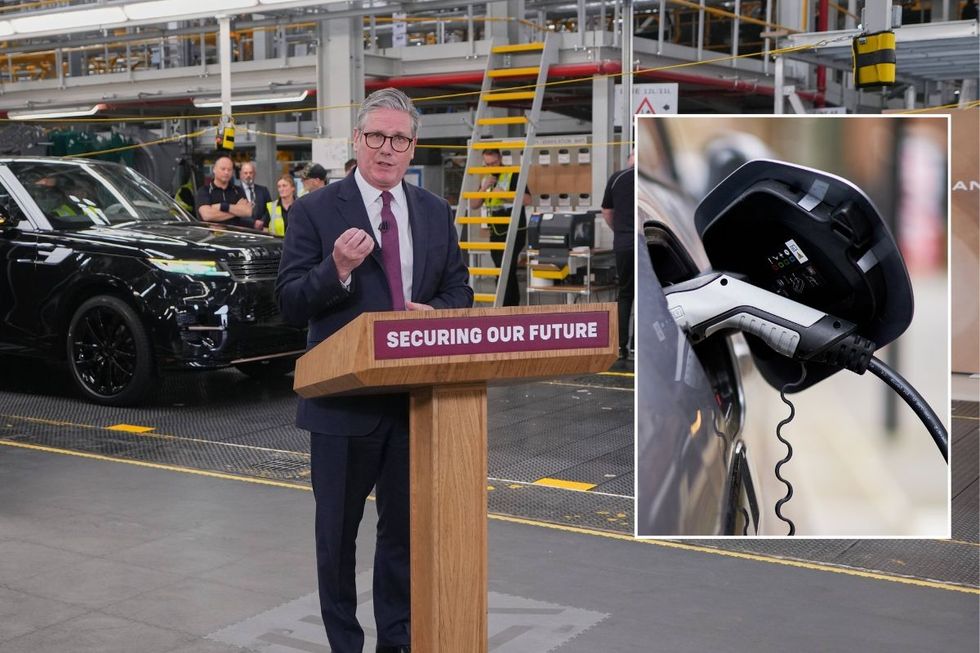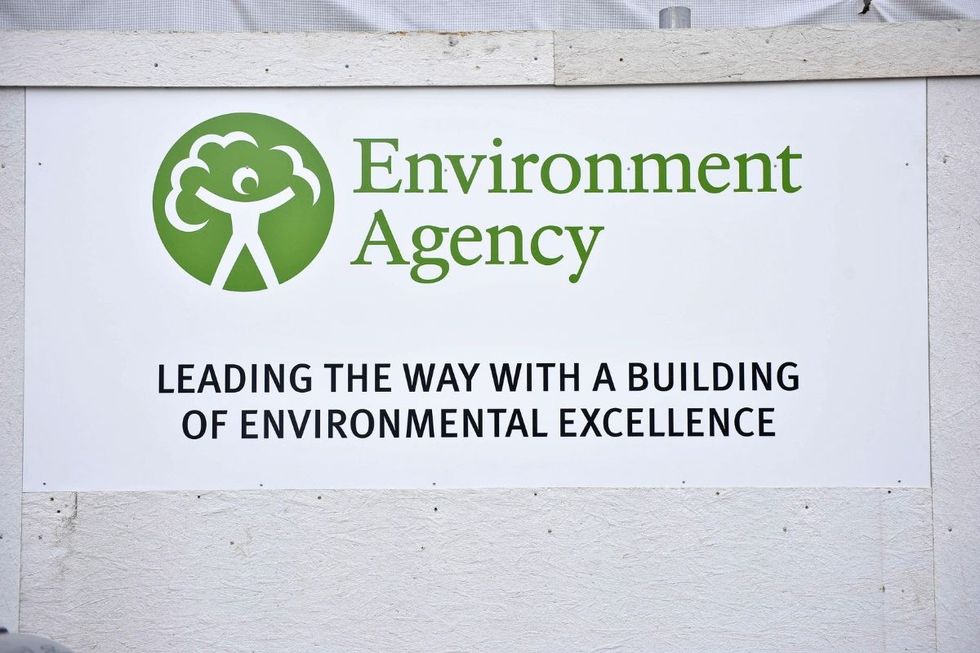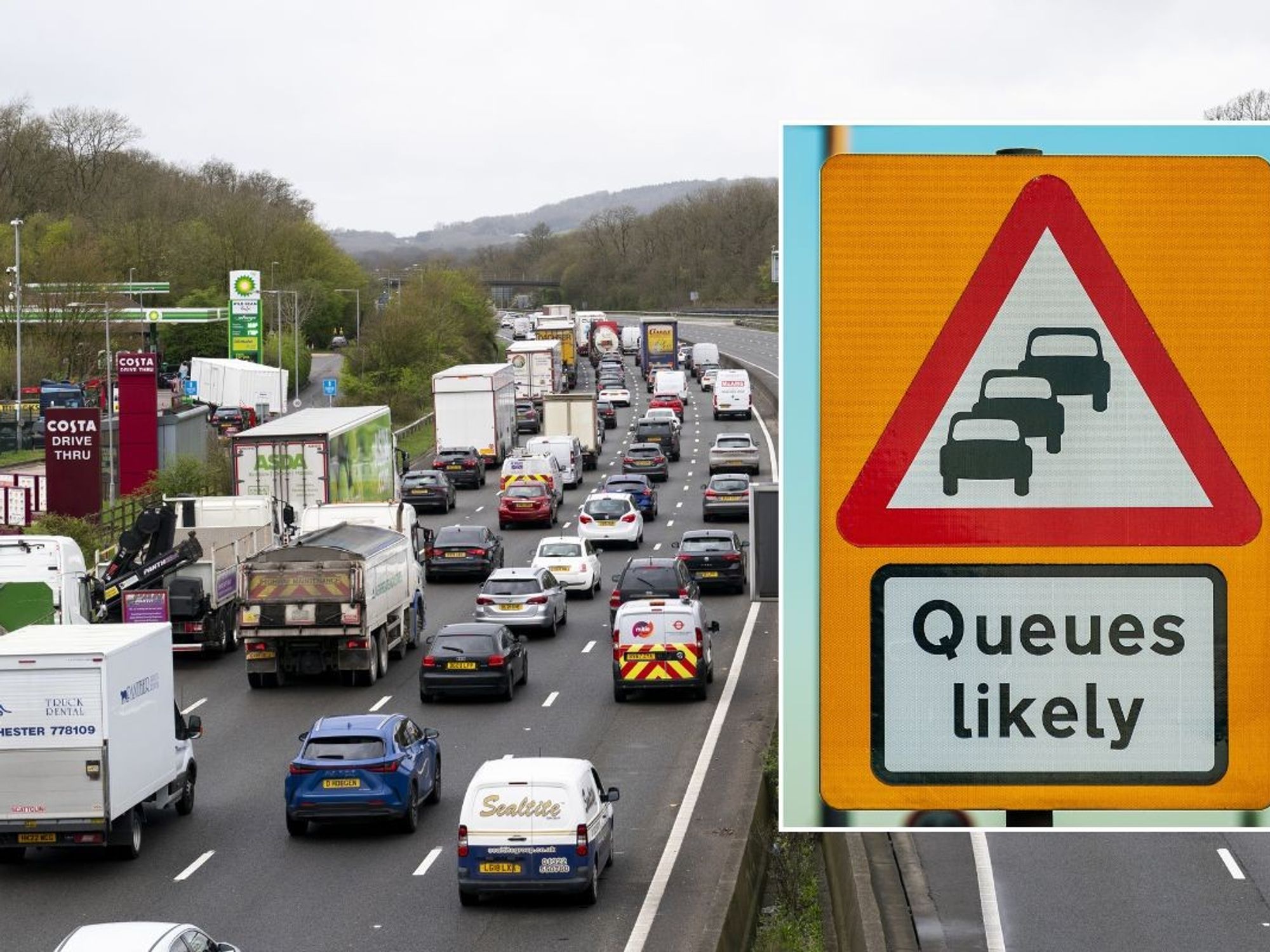Labour to require all departments to have fully electric car fleets by 2027 in bid to ditch petrol and diesel
WATCH: Sir Keir Starmer announces the Government's plans to relax the 2030 electric car mandate
All Government vehicles need to be zero emission by 2027
Don't Miss
Most Read
Trending on GB News
Government departments have been given extra time to apply for exemptions for a commitment to ensure 100 per cent of vehicles are electric within the coming years.
The Department for Transport outlined plans to electrify 25 per cent of cars in central Government department fleets by 2022.
A new target of 100 per cent was set out for central Government cars and vans to be fully zero emission by 2027, in accordance with the publication of "Decarbonising transport: A better, greener Britain".
Reporting organisations now have until Saturday, May 31, 2025, to apply for an exemption from the Government Fleet Commitment.
Do you have a story you'd like to share? Get in touch by emailingmotoring@gbnews.uk

All Government departments must ensure their car and van fleets are fully electric by 2027
PA
Departments and their "arm's length bodies" (ALBs) must ensure 100 per cent of car and van fleets are in the scope of the commitment, are not exempt and have not been given an additional exemption.
For the purposes of decarbonising the full department, ALBs can include executive agencies, non-ministerial departments, executive non-departmental public bodies and any other non-market bodies mainly controlled and financed by one or more central Government departments.
The commitment outlines that all cars and vans owned and leased by a reporting organisation are included, as well as car club vehicles.
Hire cars and vans are also included in the scope of the commitment if they are hired for six or more days.
Certain vehicles can be exempt from the Government fleet commitment, including:
- Cars and vans that are part of a salary sacrifice scheme
- Armoured vehicles
- Emergency response vehicles fitted with blue warning beacons
- Vehicles that accrue less than two-thirds of their annual mileage in the UK (mileage accrued in the UK does not include the Overseas Territories or Crown Dependencies)
- Vehicles that are not used for road transport, for example, training and testing vehicles
- Hire cars and vans operated for less than six days
Additional exemptions can be granted for certain vehicles, including if meeting the commitment would pose a security risk. Potential cars could include those which routinely conduct covert surveillance operations.
Similarly, departments can get around the commitments if safety requirements are not met, with fire safety restrictions prohibiting the use of electric and hydrogen vehicles at nuclear sites.
There may also be instances where an additional exemption can be granted if no zero emission vehicle options are "technically viable".
The Environment Agency faced backlash earlier this year when it reported spending around £2.5million on its diesel fleet in 2023-2024.
LATEST DEVELOPMENTS:

The Environment Agency spent around £2.5million on its diesel fleet in 2023-2024
PA
The report found that the EA had only been purchasing electric cars since April 2022, prompting criticism from Reform deputy leader Richard Tice.
He said: "The hypocrisy is they’re telling individuals to buy electric vehicles when they’re experiencing the reality that actually it’s more efficient and productive to continue with their own existing combustion engine cars."
A spokesperson for the Environment Agency said: "We are leading the way across Government and the public sector in decarbonising our fleet – including ensuring all cars and vans added to our fleet since April 2022 are fully electric.








